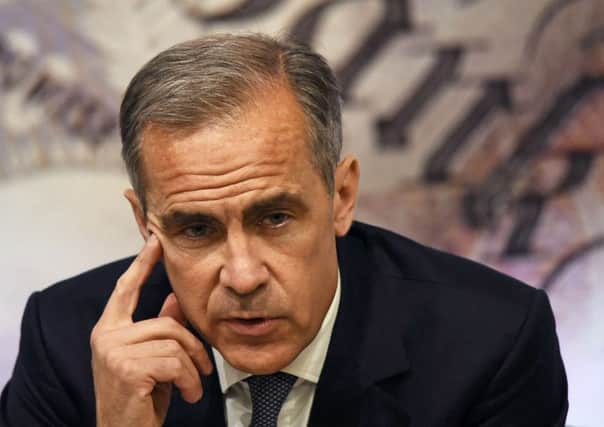Jeff Salway: '˜Whatever it takes' small comfort to savers


He’s starting by making it easier for banks to lend, despite warning recently that current debt levels could turn any economic downturn into a full-blown catastrophe.
The “high level of UK household indebtedness” is one “channel through which the [EU] referendum could increase risks to financial stability”, according to the Bank’s latest Financial Stability Report.
Advertisement
Hide AdAdvertisement
Hide AdWe’re already taking on unsecured debt at the fastest rate for a decade, according to The Money Charity. Now the dust is slowly settling after the shock of the referendum result, it seems that rising personal and household debt levels could soon become an even bigger problem.
Interest rates could be cut to 0.25 per cent this week and are unlikely to rise before early 2019. The breathing space this gives indebted households is offset by the detrimental impact on savers.
Low interest rates have driven people to take more risk in search of the income they want. This might in some cases be the right course of action, but it has also resulted in people making bad investment decisions (as the Financial Conduct Authority pointed out in April).
That’s likely to mean some people have more exposure to property funds than they might otherwise, given the regular and reliable income the asset class can provide. It also means people are vulnerable to investment scams and mis-selling. The only reason this hasn’t been more rife over the past few years is that the banks stopped selling investments to ordinary punters because they couldn’t do it without incurring heavy fines for giving bad advice.
But they’re now re-entering that market through online models where they won’t have any liability for bad advice.
There are other reasons to be concerned about the outlook for ordinary savers. The Treasury’s desperation for short-term funds will make it even more prone to “whatever it takes” policy-making. Any chances of the government abandoning its reckless plans for a secondary annuity market, due to launch next year, have vanished. The economic climate makes it more likely that people will sell their annuities in exchange for a lump sum, oblivious to the risks and the poor value.
Retirees looking for income should also be wary of adverts suggesting equity release is the answer to their prayers. It will be suitable for some, but advisers report a spike in demand since the referendum, while there are some very dubious promotions out there right now pitching the product as “tax-free income” or a way to clear debts. Both claims are misleading and irresponsible.
Sorry if that all seems a little doom-mongery. It’s not meant to be. But Brexit has left ordinary households even more vulnerable, both to blinkered policy-making and the more unscrupulous elements of the financial services industry.
There are worrying times ahead. Mark Carney’s not kidding about that.